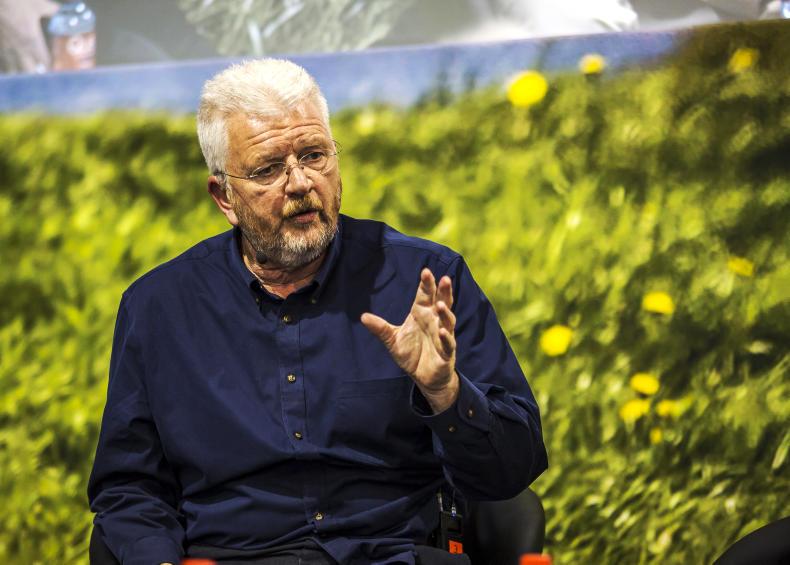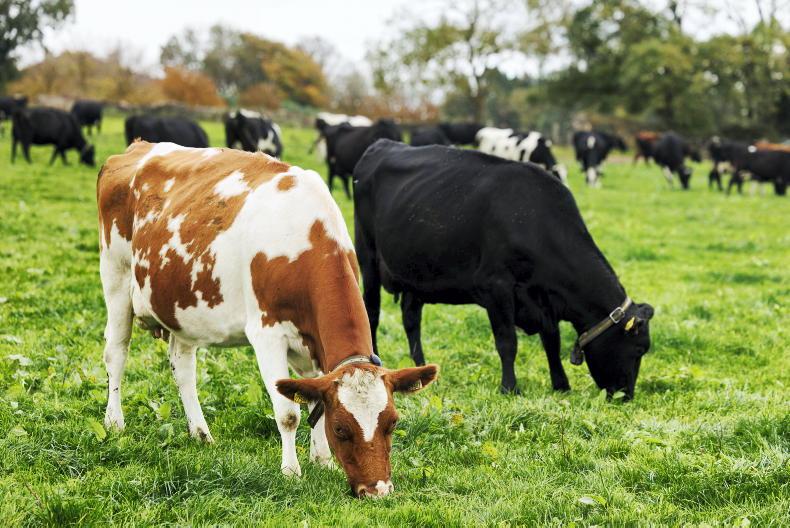Economic recovery after a downturn such as that caused by the COVID-19 pandemic is problematic enough in itself, without mentioning the additional challenges brought about at present by Brexit.
To get the Irish economy back up and running, we need to focus on jobs and not to be distracted by a set of national accounts that aren't a true reflection of what is going on in our economy.
Over the course of the lockdown there has been a stark illustration of the difference between economic activity that passes through the Irish economy and economic activity that supports jobs in the Irish economy. A case in point is the report that Irish GDP in the first quarter of 2020 increased by 1.2%, while unemployment, including those placed on furlough, was measured by the CSO at 16.5%.
Officially, net exports of goods and services increased by almost €1.9bn in the first three months, driving the increase in GDP. In the globalised sectors of the economy, growth continued, the CSO said, with industry increasing by 15.4% in volume terms and the IT sector growing by 1.5%. However, the impact of COVID-19 restrictions could be seen in the domestic-facing sectors, with the distribution, transport, hotels and restaurant sector contracting by 12.7%. Professional, administrative and support services and agriculture also contracted by 5.3% and 4.7% respectively, while construction declined by 1.6%.
We have been here before. In June 2015, the registering of patents in the Irish economy caused our GDP figures to increase by 21% in a three month period. This is absolutely unheard of – this scale of growth never happens.
Brexit fallout
Much of the debate about Brexit's impact also highlighted this disconnect. On the one hand, Brexit was capable of persuading a number of large multinational companies to relocate their European HQ to Ireland but on the other hand, a hard Brexit could devastate huge swathes of real Irish economic activity in food processing and hospitality, causing a surge in unemployment.
The emergence over the last week of the guideline for the EU's proposed €750bn COVID-19 reboot fund further highlights the challenge of communicating Ireland’s true economic reality. One of the key criteria for accessing the support is the impact of COVID-19 on GDP, which in Ireland's case could be minimal or even positive.
However, it is good to see that the Irish Government is not only trying to address this mismatch in accounts, in negotiations with EU colleagues but is demanding rightly that Brexit impacts also be taken into account. Data from Eurostat which compares GDP figures to actual income consumed shows that Irish per capita wealth falls from almost twice (189%) the EU average to just 95% when adjustments are made for transfers.
Global recovery
A number of reports and discussions this week highlighted the huge challenges of economic recovery post-lockdown.
At a global level, OECD forecasts examined global economic performance prospects based on two scenarios, a generic post-lockdown recovery and one based on a second, though smaller, outbreak of the coronavirus. The chart below illustrates both the depth of negative economic impact of the pandemic and the different outcomes based on a second outbreak or not. For Ireland, the scenario generated by a second outbreak could well be used to highlight the additional impact of a poor Brexit deal.
The key in terms of trying to sift through the real challenge of post-pandemic economic reboot is best provided by the unemployment figure which for Ireland in April and May, including in particular those receiving the Government's pandemic supports, was around 26–28%.
Different sectors clearly require different supports. However Ireland's sole industrial policy instrument over the last 20 years has been a low corporation tax incentive for foreign direct investment (FDI). In terms of direct job creation or transformation, FDI will not soak up the jobs lost or threatened by COVID-19 or Brexit. Ireland needs a second industrial development policy platform which will directly support Irish economy jobs.
Job creation
The suspension of EU State aid restrictions until the end of 2020 means there is a real opportunity to meaningfully support jobs and job creation in the high-employing indigenous sectors most impacted by COVID-19 and Brexit. The divergence between the GDP economy and the job supporting economy exposed by COVID-19 and previously by Brexit impacts must be addressed by the incoming Government.
This new economic reality requires a Government department that has its sole focus on supporting jobs in the 'real economy'. While there are separate Government agencies in the IDA and Enterprise Ireland focused on FDI and indigenous businesses respectively, with the huge constraints on state aid, Enterprise Ireland has not had anything like the level of incentives available to the IDA.
To stimulate real employment in the Irish economy requires that do more to increase those incentives moving forward.










SHARING OPTIONS